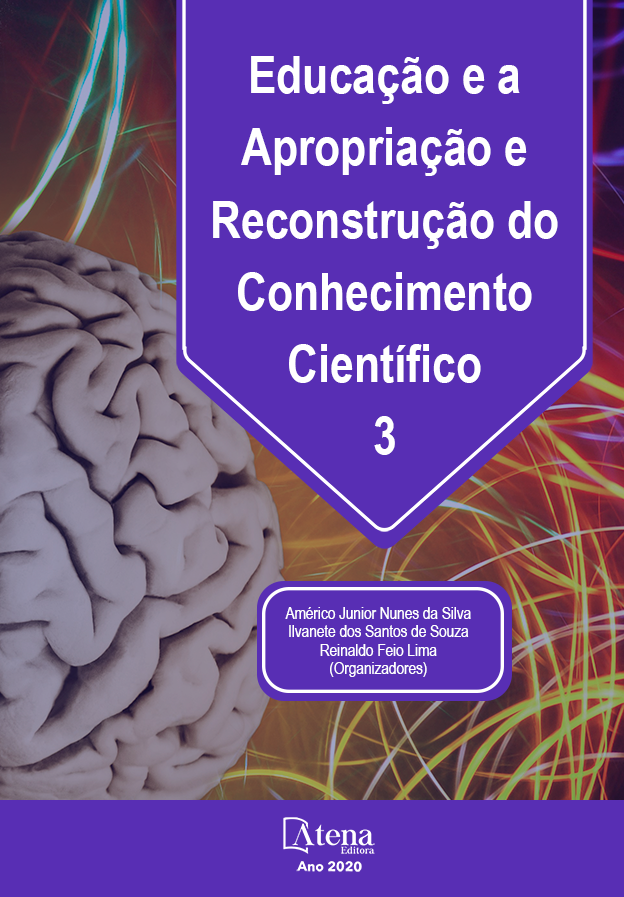
EDUCAÇÃO FEMININA NA PRIMEIRA REPÚBLICA: ESTADO DA ARTE EM HISTÓRIA DA EDUCAÇÃO NO NORDESTE BRASILEIRO
O estado da arte para pesquisas é uma referência de grande relevância para subsidiar novas produções acadêmicas, inclusive quando o assunto é História da Educação e a educação feminina no Brasil. O objetivo deste trabalho é apresentar um estado da arte sobre a educação feminina durante a I República no Nordeste brasileiro, a partir dos repositórios de teses e dissertações das universidades federais do Brasil, a contar do início dos anos 2000. Além disso, vale destacar que este levantamento contribui para dar visibilidade a mulher, historicamente constituída enquanto sujeito de invisibilidade na produção historiográfica brasileira. Para tanto, fizemos uso das abordagens em História, História da Educação e educação feminina, presentes nas obras de autores como: Jacques Le Goff (2013) que apresentou uma diferenciação entre História e Memória, e ainda conceituou o documento/monumento; Dermeval Saviani (2008) que sistematizou uma reconstrução das principais ideias pedagógicas da educação brasileira; Michelle Perrot (2007), Carla Pinsky (2012), Heleieth Saffioti (2004) e Mary Del Priore (2009) que em seus estudos apresentaram a mulher enquanto protagonista de sua história, permitindo-lhe a voz dentro de um cenário de produções acadêmicas e historiográficas predominantemente masculinizadas, elencando suas características históricas e seu modus vivendi. Enquanto aporte metodológico, fizemos um levantamento bibliográfico a respeito do objeto de pesquisa em teses e dissertações disponíveis nos repositórios virtuais das universidades federais do Brasil. Em seguida, após a verificação dos dados levantados, tendo em vista nosso recorte temporal (2000-2017), sistematizamos o texto considerando o formato de um estado da arte. Face ao exposto, pudemos perceber que, embora haja dificuldades em pesquisar sobre a educação feminina, pela falta de documentos de autoria das próprias mulheres, conforme destaca Perrot (2007), inferimos que houve, nos últimos anos, um notável avanço nas produções acadêmicas sobre o tema em discussão.
EDUCAÇÃO FEMININA NA PRIMEIRA REPÚBLICA: ESTADO DA ARTE EM HISTÓRIA DA EDUCAÇÃO NO NORDESTE BRASILEIRO
-
DOI: 10.22533/at.ed.09620271119
-
Palavras-chave: História da Educação. Primeira República. Educação feminina.
-
Keywords: History of Education. First Republic. Female Education.
-
Abstract:
The state of the art is a reference of great relevance to subsidize new academic productions, moreover, when the subject is History of Education and female education in Brazil. This paper aims to present a state of the art of female education in Northeast of Brazil during the first Republic, from the thesis and dissertations from the repository of federal universities in Brazil, from the beginning of the 2000s. Furthermore, it is important to highlight that this survey contributes to the women’s visibility, historically constituted as a subject of invisibility in Brazilian historiographic production. For this purpose, we used the approaches in History, History of Education and female education, contained in the works of authors such as Jacques Le Goff (2013), who set forth a differentiation between History and Memory, as well as conceptualized the document/monument. Dermeval Saviani (2008) systematized a reconstruction of the main pedagogical ideas of Brazilian education. Michelle Perrot (2007), Carla Pinsky (2012), Heleieth Saffioti (2004) and Mary Del Priore (2009) who introduced the woman as the protagonist of her own story in her studies, granting her voice within a scenario of academic and historiographic productions, predominantly masculinized, cataloguing their characteristics and their modus vivendi. We used as a methodological contribution a bibliographic survey about the research object in thesis and dissertations available in the repositories of federal universities in Brazil. Afterwards, after verifying the collected data, bearing in mind our temporal frame (2000-2017), we systematized the text considering the state of the art format. With that in mind, we could realize that even though there are difficulties in research about the female education, because of the lack of authoring documents by women themselves, as Perrot (2007) highlighted, we imply that, in recent years, there has been a notable advance in academic productions about the theme in discussion.
-
Número de páginas: 11
- Aline de Medeiros Fernandes
- Gillyane Dantas dos Santos
- Aliny Dayany Pereira de Medeiros Pranto


